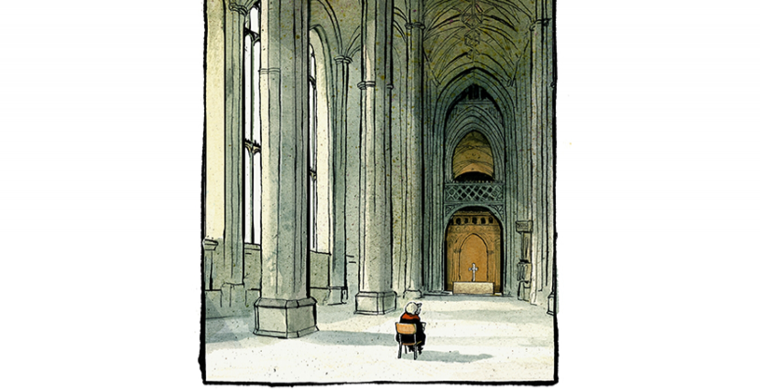The C of E has fallen for anti-Christian theories of race
By Michael Nazir-Ali
https://www.spectator.co.uk/
1 May 2021
In its new report, From Lament to Action, the Church of England has decided to focus on race. Now, there is no question that racism exists within all cultures, but the Judaeo-Christian tradition has always been opposed to it. Christianity emphasises the common origin of all humans, made in God's image, and contemporary science corroborates this moral and spiritual insight. The Church is right to set its face against racism.
Predictably, however, the C of E report urges an audit of monuments and an examination of the Church's complicity in the slave trade. Why doesn't it celebrate the long tradition of those Christians who devoted their lives to abolition?
The Englishwoman St Bathilda, herself a former slave, and consort of Clovis II of France, campaigned against the slave trade and for the emancipation of slaves in the 7th century. Charlemagne was opposed to slavery and, in the medieval Church, it was declared to be against divine law. In England, St Anselm, Archbishop of Canterbury, outlawed slavery in 1102 at the Synod of Westminster. Bartolome de Las Casas, the Dominican bishop of Chipas, Mexico, struggled for the freedom and dignity of the indigenous people of the Americas. He challenged the conquistadors and thereby initiated the discourse on human rights in Europe.
'To be fair, the government is pulling out all the stops to help meet it.'
In more recent history, Anglicans like William Wilberforce and those in the Clapham Sect dedicated themselves and their resources to ending the slave trade and slavery itself. The Church Missionary Society was active in the resettlement of captives rescued from slave ships by the Royal Navy. Christianity has a glorious heritage: why not hold these saints up as examples for our conduct today? Why not stop actively seeking darkness, but look at the light?
Critical race theory (CRT), which the C of E seems to have embraced, conflates slavery and the slave trade with colonialism and the British empire. They are not the same. There are some empires that are wholly bad but the British empire was a mix. There were adventurers and exploiters but also high-minded civil servants and soldiers who did lasting good.
In India, for instance, there is no doubt that the 'white nabobs' enriched themselves at the expense of the Indian population. There were, however, those like Sir Charles Napier, the conqueror of Sind and undoubtedly a dedicated imperialist, who abolished slavery in the province. Sir John Lawrence was called 'the saviour of the Punjab' by Punjabis themselves. General John Jacob, the eponymous founder of the city of Jacobabad in modern Pakistan, was the creator of the vast irrigation system which has made the land around it fertile.
Certainly there was racism in the Church, but there were also clergy like C.F. Andrews, who collaborated with Gandhi in the struggle for independence. In southern Africa, British churchmen were prominent in the fight against apartheid. Think of Bishops Colin Winter and Trevor Huddleston, and Frank Weston in British East Africa, whose cathedral in Zanzibar was built on the site of the old Arab slave market. Weston vigorously opposed the colonial policy of forced labour.
Today the Anglican Communion is a racially and culturally diverse family of 41 provinces bound together by a common faith. If the C of E was really interested in diversity, the report would recommend reflecting and representing these different cultures in its own structures. While seeking to recruit from a diverse pool locally, it would also insist on drawing on the pool of undoubted talent from the various provinces, especially clergy and lay people outside the UK who are socially conservative and look with suspicion on anything too 'woke'.
Of course we're all inclined to promote 'people like us'; it's human nature. But the Archbishops' advisers and the Crown Nominations Commission should resist the impulse to recruit only those who think as they do. They should encourage diocesan representatives to be bold in considering candidates from a variety of backgrounds, and appoint those best equipped for the work, because neither 'tokenism' nor a quota system, as advocated by the report, will produce a healthy and well-equipped ministry.
The other, more fundamental difficulty is that CRT, the intellectual underpinning of the theology commended in the report, is, at heart, in opposition to Christ and Christ's message. It is based on Marxist ideas of exploitation and seeks to make victims of any groups deemed 'oppressed', so as to use them to overthrow the existing system. The theory seeks success through conflict, not through peaceful means; and, as I hope the Church hierarchy will one day understand, it is hostile to the reconciliation and fellowship demanded by the Gospel.
Rather than importing identity politics into the Church, we should be seeking to order our lives in the light of Christ, focussing on forgiveness and helping our neighbours. Where the training of clergy and lay people is concerned, our emphasis must be on deepening their knowledge of the Bible and the constant teaching of the Church, not deepening their knowledge of CRT and its many facets.
Church bureaucracy continues to mushroom, even as attendance and membership decline. Instead of recruiting another great cohort of diocesan and national officers to cater for this or that group, we should be ministering to the troubled people of our nation, supporting family life and encouraging people back to church. Our buildings must once again be open to all: the regulars and the casual, worshippers and tourists, so that we can proclaim our real faith -- not in critical race theory, but in Christ.
The Right Revd Dr Michael Nazir-Ali is a former Bishop of Rochester.














